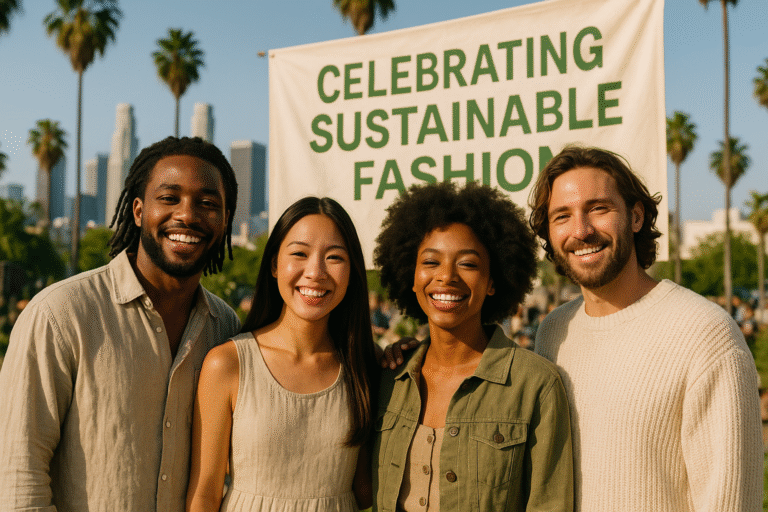Los Angeles hosted its annual EcoFashion Week, a celebration of sustainable fashion that has rapidly gained popularity in recent years. Held at the Los Angeles Convention Center, this event brought together designers, activists, and consumers to showcase the best in eco-conscious fashion. From clothing made of recycled materials to locally sourced fabrics and carbon-neutral production processes, the event highlighted how the fashion industry is evolving to become more environmentally responsible.
Key figures involved in this transformation include Stella McCartney, the renowned British designer known for her commitment to cruelty-free and sustainable fashion. McCartney has been a vocal advocate for the importance of reducing the fashion industry’s environmental impact and using innovation to drive sustainability. During her keynote address at the event, McCartney emphasized the importance of shifting toward a circular economy within the fashion world. “Fashion should not only look good but also do good,” she said. “We need to think beyond trends and focus on creating garments that are designed to last and have minimal environmental impact.”
Another notable figure at the event was Tom Williams, founder of the L.A.-based brand Renew Threads. Williams has built his business around the idea of using discarded clothing and textiles to create new, high-quality garments. He explained that his brand’s focus is on the circular economy—recycling and reusing materials to limit waste. “The industry is finally understanding that we can create beautiful, functional clothing while also being kind to the planet,” Williams said during a panel discussion on sustainable fashion.
Los Angeles, long a trendsetter in fashion and culture, has become a focal point for the growing movement toward sustainable consumer habits. A significant portion of the city’s fashion-conscious residents are increasingly adopting eco-friendly practices, choosing secondhand clothing, and supporting brands that focus on sustainability. Retailers like Patagonia, Reformation, and Everlane have found success in the city due to their commitment to ethical manufacturing and transparency.
The event also served as a platform for startups and emerging designers to present their sustainable collections. Eco-friendly textiles, such as organic cotton, hemp, and innovative materials made from recycled ocean plastics, were widely showcased. It’s clear that consumers, particularly millennials and Gen Z, are leading the charge by demanding more sustainable and ethical products from the brands they love.
While the event was full of optimism for the future of sustainable fashion, challenges remain. Experts acknowledge that sustainable fashion still faces hurdles such as higher production costs, limited availability of eco-friendly materials, and the ongoing issue of “greenwashing” by companies trying to capitalize on the trend without making meaningful changes. However, EcoFashion Week 2023 demonstrated a clear shift in consumer awareness and corporate responsibility that is likely to shape the future of the fashion industry.
As the demand for sustainable fashion continues to rise, it’s evident that the movement is not just a passing trend. Instead, it’s becoming a defining feature of the global fashion industry, with Los Angeles leading the way as a center for conscious consumerism and innovation in style.



